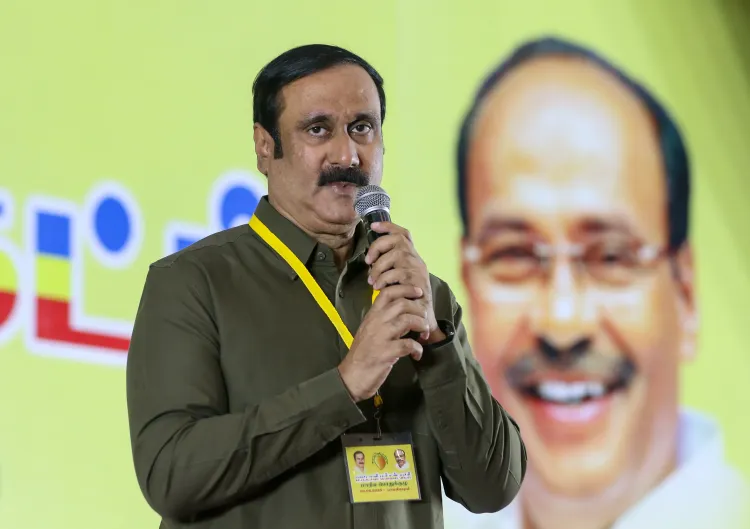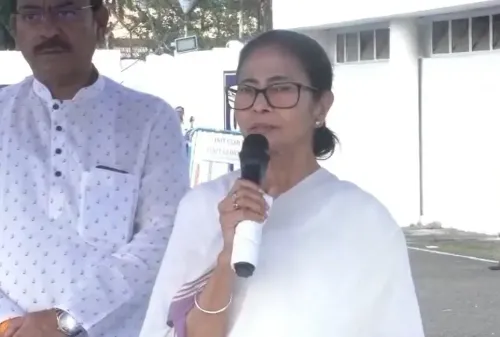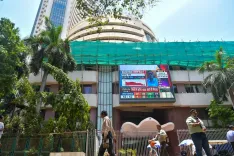Why is Anbumani Ramadoss Criticizing the Centre for Removing GST Concession for Differently-Abled?

Synopsis
Key Takeaways
- Withdrawal of GST concession poses challenges for differently-abled car buyers.
- Dr. Ramadoss highlights the necessity of personal mobility for disabled individuals.
- Calls for reinstatement emphasize inclusivity and empowerment.
- Proposed tax reduction aims to support the financially vulnerable.
- The issue raises broader questions about social justice in taxation.
Chennai, Oct 12 (NationPress) PMK president and Rajya Sabha MP Dr Anbumani Ramadoss has voiced strong objections against the Union government’s choice to eliminate the 10 percent Goods and Services Tax (GST) concession previously available to differently-abled individuals when buying cars, labeling the action as “unjust and insensitive”.
In a statement shared on X, Dr Ramadoss highlighted that while the recent adjustments to GST rates on various products, ranging from essential goods to vehicles, provided relief for the general populace, the removal of tax benefits for the disabled community was profoundly disappointing.
Prior to the GST adjustments, all vehicles were subjected to a uniform tax rate of 28 percent. However, differently-abled persons were granted a 10 percent tax concession, resulting in a GST payment of only 18 percent when acquiring a vehicle. After the recent revision, small cars are now taxed at 18 percent, while larger vehicles face taxes as high as 40 percent.
Ramadoss noted that this restructuring effectively negates the special concession previously afforded to the differently-abled, as the government has mandated that all consumers, including those with disabilities, now pay the same 18 percent tax on small vehicles.
“This is unfair,” he stated, emphasizing that the exemption was never intended as a luxury, but rather as a measure of inclusion and empowerment for differently-abled citizens.
He argued that the 10 percent concession was instrumental in enabling middle-class and lower-middle-class individuals with disabilities to achieve personal mobility, which he described as a necessity rather than a privilege.
“Eliminating this support will render car ownership an even more distant aspiration for them,” he remarked.
Dr Ramadoss urged the Central government to promptly restore the GST concession for differently-abled persons.
He also proposed a further reduction of the tax rate to 6 percent for vehicles purchased by such individuals, insisting that true social justice is not reflected in broad tax cuts, but in maintaining special provisions for those in greatest need. The PMK leader’s comments have ignited discussion regarding the government's strategy of balancing tax reforms with social equity.









